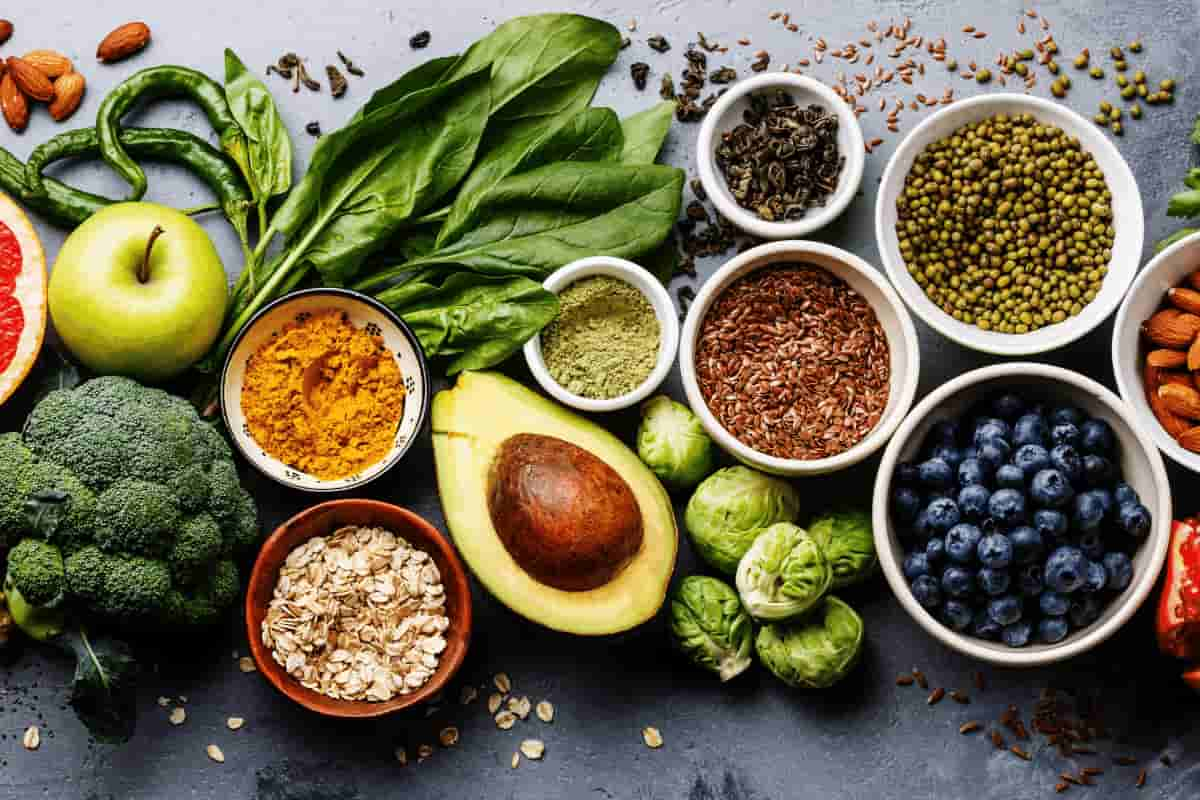Diet and Menopause: What You Need to Know

While menopause is a unique experience for every individual, there’s one common factor that can significantly influence the journey: what you eat.
A diet rich in plants offers the most benefit for hormone balance and overall health and lowers the risk for disease during menopause. Like anything else in life, finding balance in your dietary habits will help support you for the long term, through menopause and beyond.
Why Diet Impacts Your Hormones in Midlife
There’s a wealth of high-quality evidence that your dietary habits are strongly linked to your risk for developing an array of diseases and conditions. It comes as no surprise, then, that nutrition also plays a role in your experience of menopause.
The foods you eat strongly influence how your hormone levels manifest in your everyday life. When hormones can feel like they’re going off the rails around menopause, this is the kind of influence that can make a major difference.
So, whether you’re just starting to experience symptoms of perimenopause or feel like you’re fully “in it,” now is the time to be thinking about how your diet may be impacting your hormonal health. For better or worse, you may have more control than you think.
Diet and Timing of Menopause
Researchers are interested in the link between nutrition and the timing of menopause, as it can have wide-ranging effects on health.
Earlier menopause has been associated with lower bone density and increased risk for osteoporosis, cardiovascular disease, depression and earlier cognitive decline. Later onset is associated with an increased risk of breast, ovarian, and endometrial cancers.
While several studies have been done to determine a relationship between nutrition and age of menopause, there is no clear conclusion from the data.
One recent study suggests that eating an overall healthy diet may delay the onset of menopause by a few years. Researchers think that antioxidants and omega-3 fatty acids in foods may protect the eggs in the ovaries.
Refined carbohydrates (like packaged snack foods, white breads, and pastas) seem to have the opposite effect and cause menopause to occur earlier. This may be because these foods increase the risk of insulin resistance and could negatively impact the balance of female reproductive hormones.
The Impact of Diet on Menopause Symptoms
A diet based on whole, nutrient-rich foods can help to prevent excess weight gain, preserve metabolic health and reduce cholesterol and blood pressure.
Cardiovascular Health
A 2018 study of postmenopausal Chinese women found that those who consumed at least four servings of vegetables per day, especially dark green leafy vegetables, corn and tubers, had lower LDL cholesterol and better lipid profiles. In fact, they were 33% less likely to have high LDL cholesterol, a significant risk factor for cardiovascular disease.
Improving Menopause Symptoms
Another 2018 study found that eating a more antioxidant-rich diet was associated with fewer menopause symptoms like hot flashes, sleep disturbance, anxiety and fatigue. Antioxidants are abundant in colorful plant foods like berries, beans, dark leafy greens, and dark chocolate.
Soy contains phytoestrogens (a compound in plants that acts similarly to estrogen) that can help manage menopausal symptoms and improve measures of cardiovascular health.
In fact, some hypothesize that the high intake of whole soy foods like tofu, tempeh, miso, and edamame in Asian countries is why menopausal women in these areas do not experience the same level of symptoms as women in the United States.
Amplifying Menopause Symptoms
Some women report noticing a correlation between eating certain foods and worsened menopause symptoms.
Caffeine, sugar, alcohol, and spicy foods may trigger hot flashes, night sweats, and insomnia for people, especially if they’re consumed later in the day. Choose decaf as much as possible and steer yourself towards natural sources of sweetness like fruit if you have a sweet tooth.
Find Balance Through Diet
Choosing nutritious foods can help minimize inflammation throughout the body and support hormone balance during menopause.
Mood
Highly processed foods can contribute to hormonal imbalance and increase the risk for depression in postmenopausal women.
Avoid excess sugar and refined carbohydrates and regularly choose healthy fats like unsaturated fats from plant foods.
Bone Health
While exercise and lifestyle are other important parts of the equation, your body can’t build healthy bones without the right nutrients
In research comparing the impact of diet patterns on bone health, the women who ate a diet rich in fruits and vegetables had less bone density loss than those who ate a more processed diet.
Support your bone health by consuming an adequate amount of calcium, vitamin D and protein. Great sources of these nutrients include tofu, sardines, beans, fortified cereals and orange juice, plant-based milks, and green leafy vegetables like kale, collard greens, and spinach.
Fiber
A diet rich in fruits, vegetables, whole grains, beans, nuts, and seeds also ensures that you get sufficient fiber intake. Fiber supports digestive health, but it also helps you feel satiated, lose and maintain weight, and reduces the risk for chronic diseases like cardiovascular disease, type 2 diabetes, and certain cancers.
Sign up for more unique women’s health content
By submitting this form, you agree to the Lisa Health Privacy Policy and Terms of Use


